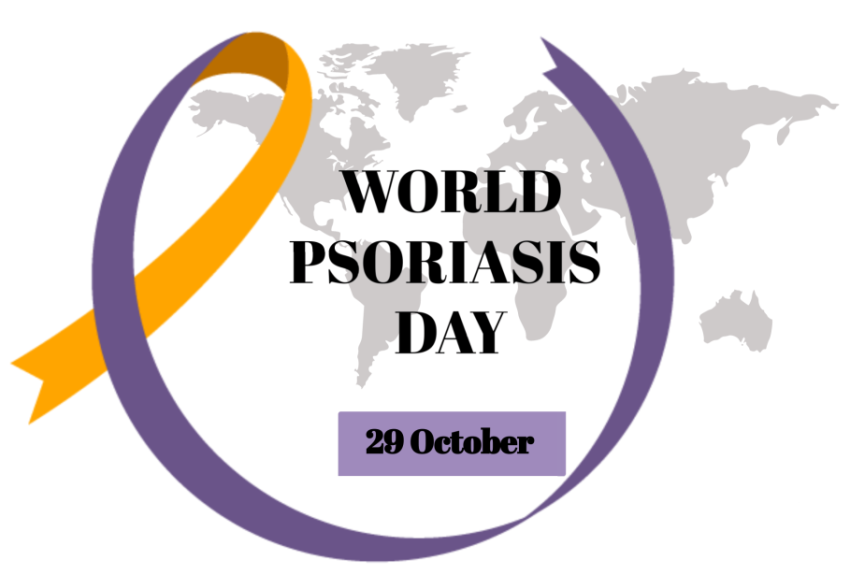Scientific & Medical Events: World Psoriasis Day 2020
October 29 is World Psoriasis Day. This is the day that connects the 125 million people living with psoriatic disease in a global force for increased awareness and improved access to treatment.
Psoriasis is an immune-mediated disease (a disease with an unclear cause that is characterized by inflammation caused by dysfunction of the immune system) that causes inflammation in the body. There may be visible signs of the inflammation such as raised plaques (plaques may look different for different skin types) and scales on the skin.
This occurs because the overactive immune system speeds up skin cell growth. Normal skin cells completely grow and shed (fall off) in a month. With psoriasis, skin cells do this in only three or four days. Instead of shedding, the skin cells pile up on the surface of the skin. Some people report that psoriasis plaques itch, burn and sting. Plaques and scales may appear on any part of the body, although they are commonly found on the elbows, knees, and scalp.
Inflammation caused by psoriasis can impact other organs and tissues in the body. People with psoriasis may also experience other health conditions. One in three people with psoriasis may also develop psoriatic arthritis. Signs of PsA include swelling, stiffness and pain in the joints and areas surrounding the joints. PsA often goes undiagnosed, particularly in its milder forms. However, it’s important to treat PsA early on to help avoid permanent joint damage.
Symptoms often start between ages 15 and 25, but can start at any age. Men, women, and children of all skin colors can get psoriasis.
Psoriatic arthritis (PsA) is a chronic, inflammatory disease of the joints and where tendons and ligaments connect to bone. Like psoriasis, PsA is associated with related health conditions (comorbidities).
It can start at any age and may affect children. The disease often appears between ages 30 and 50. For many people, it starts about 10 years after psoriasis develops, but some develop PsA first or without ever developing or noticing psoriasis.
Though there is no cure, there is a growing range of treatments available to help stop the disease progression, lessen pain, protect joints and preserve range of motion. If you have or suspect you may have PsA, it is extremely important to work with a rheumatologist (a doctor who specializes in how the immune system affects joints, bone and muscles) to find the right treatment plan.
Early recognition, diagnosis and treatment of PsA can prevent or limit the extensive joint damage that can occur in later stages of the disease.
For read the more information click here:
https://www.spindermatology.org/
https://www.psoriasis.org/about-psoriasis/
https://ifpa-pso.com/our-actions/world-psoriasis-day/world-psoriasis-day-2020/
Dr. Boris NEDELCIUC,
Associate Professor, MD-PhD at Nicolae Testemitanu State University of Medicine and Pharmacy,
Chisinau, Republic of Moldova
National Representative of the Skin Inflammation & Psoriasis International Network, France
- In the same category:
Scientific & Medical Events: World Psoriasis Day 2019 – https://e-dermatologie.md/scientific-medical-events-world-psoriasis-day-2019/
Scientific & Medical Events: World Psoriasis Day 2018 – https://e-dermatologie.md/scientific-medical-events-world-psoriasis-day-2018/
Scientific & Medical Events: World Psoriasis Day 2017 – https://e-dermatologie.md/scientific-medical-events-world-psoriasis-day-2017/
Scientific & Medical Events: World Psoriasis Day 2016 – https://e-dermatologie.md/scientific-medical-events-world-psoriasis-day-2016/
Scientific & Medical Events: World Psoriasis Day 2015 – https://e-dermatologie.md/scientific-medical-events-world-psoriasis-day-2015/


Lasă un răspuns